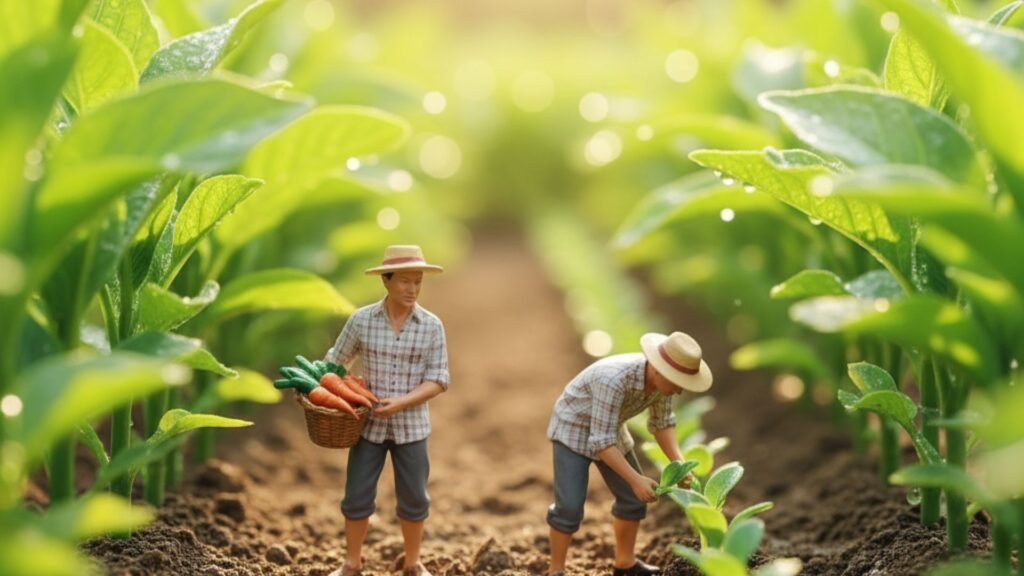Why ISO 22000 Certification Could Be Your Farm’s Secret Weapon
Picture this: you’re out in the fields, the sun’s just peeked over the horizon, and you’re checking on your crops or livestock, feeling that deep connection to the land. It’s a good life, right? But then, you get a call from a big buyer—maybe a supermarket chain or a food processor—who wants to know if your farm meets food safety standards. Suddenly, that peaceful morning feels a little less calm. If this sounds familiar, you’re not alone. For agricultural producers, keeping up with food safety demands is no small feat. That’s where ISO 22000 certification comes in—a game-changer that can set your farm apart. Let’s break it down and see why this certification might just be the edge your farm needs.
What’s ISO 22000, Anyway?
ISO 22000 is an international standard for food safety management systems. Sounds like a mouthful, doesn’t it? Essentially, it’s a set of guidelines that ensures every step of your food production—from planting seeds to packaging produce—is safe, traceable, and high-quality. It’s not just about avoiding contamination; it’s about building a system that proves your farm is trustworthy. For farms, this means everything from how you handle pesticides to how you store grain or manage livestock feed.
You might be thinking, “My farm’s already safe—why bother with certification?” Fair question. The truth is, safety isn’t just about what you know; it’s about proving it to buyers and consumers. ISO 22000 gives you a globally recognized badge of trust. It’s like a handshake that says, “We’ve got this under control.”
Why Should Farmers Care?
Let’s get real for a second. Farming isn’t just about growing food; it’s about getting that food to market in a way that keeps customers happy. ISO 22000 certification does a few things that can make life easier for agricultural producers:
- Opens Doors to Big Buyers: Large retailers or food processors often require ISO 22000 or similar certifications. Without it, you might be locked out of lucrative contracts.
- Builds Consumer Trust: Shoppers today want to know their food is safe. Certification shows you’re serious about quality, which can translate to brand loyalty.
- Reduces Risk: A solid food safety system catches issues before they become costly recalls or lawsuits.
- Streamlines Operations: The process of getting certified forces you to tighten up your practices, which can save time and money in the long run.
Here’s a little story. I heard about a small vegetable farm that struggled to get their greens into major grocery stores. They had great produce, but buyers kept asking for certifications they didn’t have. After getting ISO 22000 certified, they landed a contract with a regional chain and grew their revenue significantly. That’s the kind of difference we’re talking about.
The Challenges (Because Nothing’s Ever Perfect)
Let’s not sugarcoat it: getting ISO 22000 certification isn’t a walk in the park. For smaller farms, the upfront costs—consultants, audits, and training—can feel daunting. And yes, the paperwork can be a headache. I talked to a dairy farmer who said the documentation felt like learning a new language. But he also said that once he got the hang of it, the system made his operation run smoother than ever.
Another challenge? Time. Farming is already a 24/7 job, and carving out hours to implement a new system can feel impossible. But here’s the thing: the time you invest now can save you from bigger headaches later, like a rejected shipment or a food safety scare.
And let’s not forget about cultural resistance. If your team’s used to doing things a certain way, convincing them to adopt new protocols might take some finesse. My advice? Get everyone involved early. Explain how certification can protect their jobs and make the farm more competitive. A little buy-in goes a long way.
The Payoff: Why It’s Worth the Effort
So, why go through all this trouble? Because the benefits aren’t just about checking a box. ISO 22000 can transform how your farm operates and how the world sees you. Imagine being able to tell a buyer, “Our produce isn’t just fresh—it’s backed by a globally recognized safety standard.” That’s a powerful pitch.
Plus, there’s a ripple effect. Certification can lead to better relationships with suppliers, who’ll see you as a reliable partner. It can also make your farm more resilient. Think about it: a well-documented system means you’re ready for unexpected audits. And in an era where food safety scandals make headlines—remember the E. coli outbreaks tied to leafy greens?—being prepared sets you apart.
How to Get Started Without Losing Your Mind
Feeling ready to take the plunge? Here’s a practical roadmap to get you going:
- Do Your Homework: Research what ISO 22000 requires. The International Organization for Standardization’s website has free resources to get you started.
- Find a Consultant: If you can afford it, hire a food safety consultant who specializes in farms. They’ll guide you through the process and save you time.
- Train Your Team: Get everyone on board with short, practical training sessions. Online platforms or local agricultural extensions often offer courses.
- Start Small: Focus on one or two critical areas, like water safety or equipment sanitation, and build your system from there.
- Pick a Certification Body: Choose a reputable auditor. They’ll walk you through the audit process.
Oh, and one more thing: don’t try to do it all at once. Farming is seasonal, and so is progress. Maybe tackle the documentation in the off-season when you’re not racing against the harvest clock.
A Little Inspiration for the Road Ahead
You know what’s amazing about farmers? You’re problem-solvers by nature. Whether it’s battling unpredictable weather or figuring out how to get more yield from a tough season, you’ve got resilience in your DNA. ISO 22000 is just another challenge to conquer. It’s not about changing who you are—it’s about showing the world how good you already are.
Think of certification like a bumper crop. It takes effort, planning, and a little faith, but when it pays off, it’s worth every ounce of sweat. So, why not take that first step? Your farm, your customers, and maybe even your bottom line will thank you.
Wrapping It Up
ISO 22000 certification might sound like a big leap, but it’s really about building on what you already do well. It’s a chance to prove your farm’s commitment to safety, quality, and trust. Sure, the process has its hurdles—costs, time, and a learning curve—but the payoff is real. From landing bigger contracts to protecting your reputation, this standard can be a lifeline in today’s competitive food industry.
So, what’s stopping you? Maybe it’s time to grab a coffee, sit down with your team, and start mapping out your path to certification. Your farm’s future might just depend on it.







